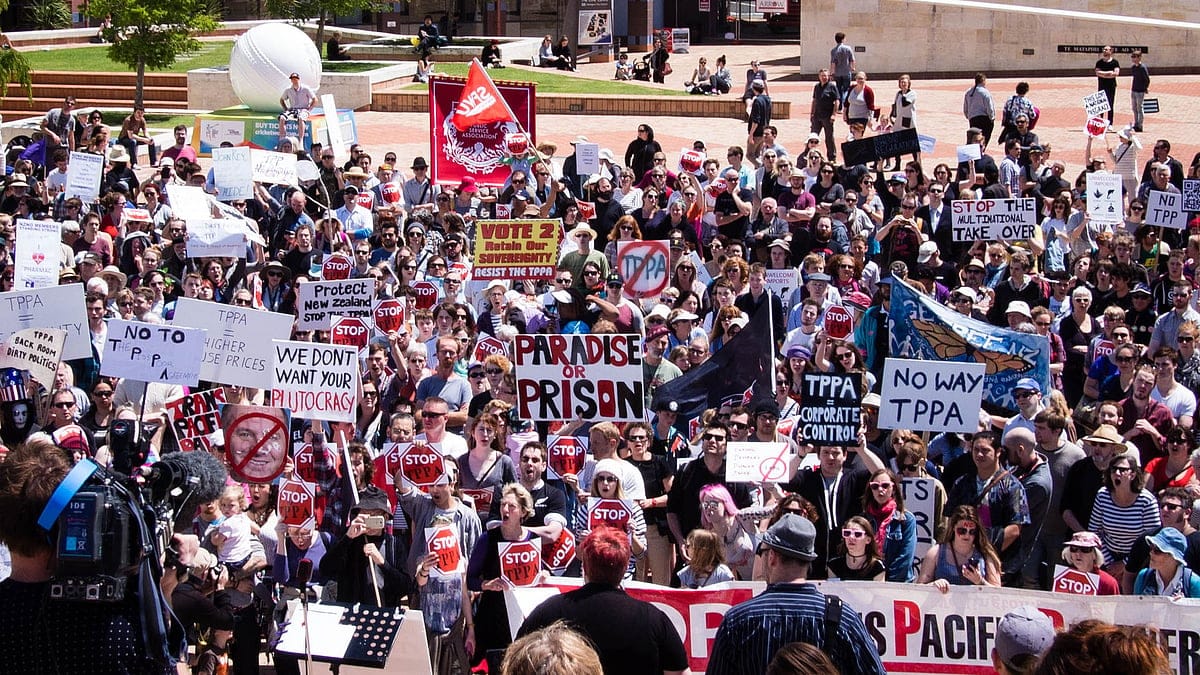Presidential politics and the Trans-Pacific Partnership trade deal

WASHINGTON — Despite two weeks' worth of heated political conventions and concerted efforts on both sides to denounce the respective platforms pushed by Donald Trump and Hillary Clinton, the two political combatants appear to share at least one issue in common: an opposition to the Trans-Pacific Partnership trade deal.
Convincing voters of said position could prove to be more difficult for Clinton, however: in November 2012 it was the former secretary of state who described the deal as "the gold standard in trade agreements."

